Links Between East and West 17 Pursuit of Happiness 东西方的连接 - 追求幸福
Human happiness is one of the most essential and debated topics throughout history. And the philosophical thinking on this topic has not only occurred in the so-called “great civilizations,” such as ancient Greece or China, but has also been found in many native cultures worldwide. What is true happiness? Why do humans pursue happiness besides fulfilling physical needs? Is it possible to attain happiness within our lifetimes? If so, how? These are questions that people today still seek answers to. To further explore these questions on the core of happiness, it is necessary to first look into what our ancestors and predecessors contributed to this inner exploration.
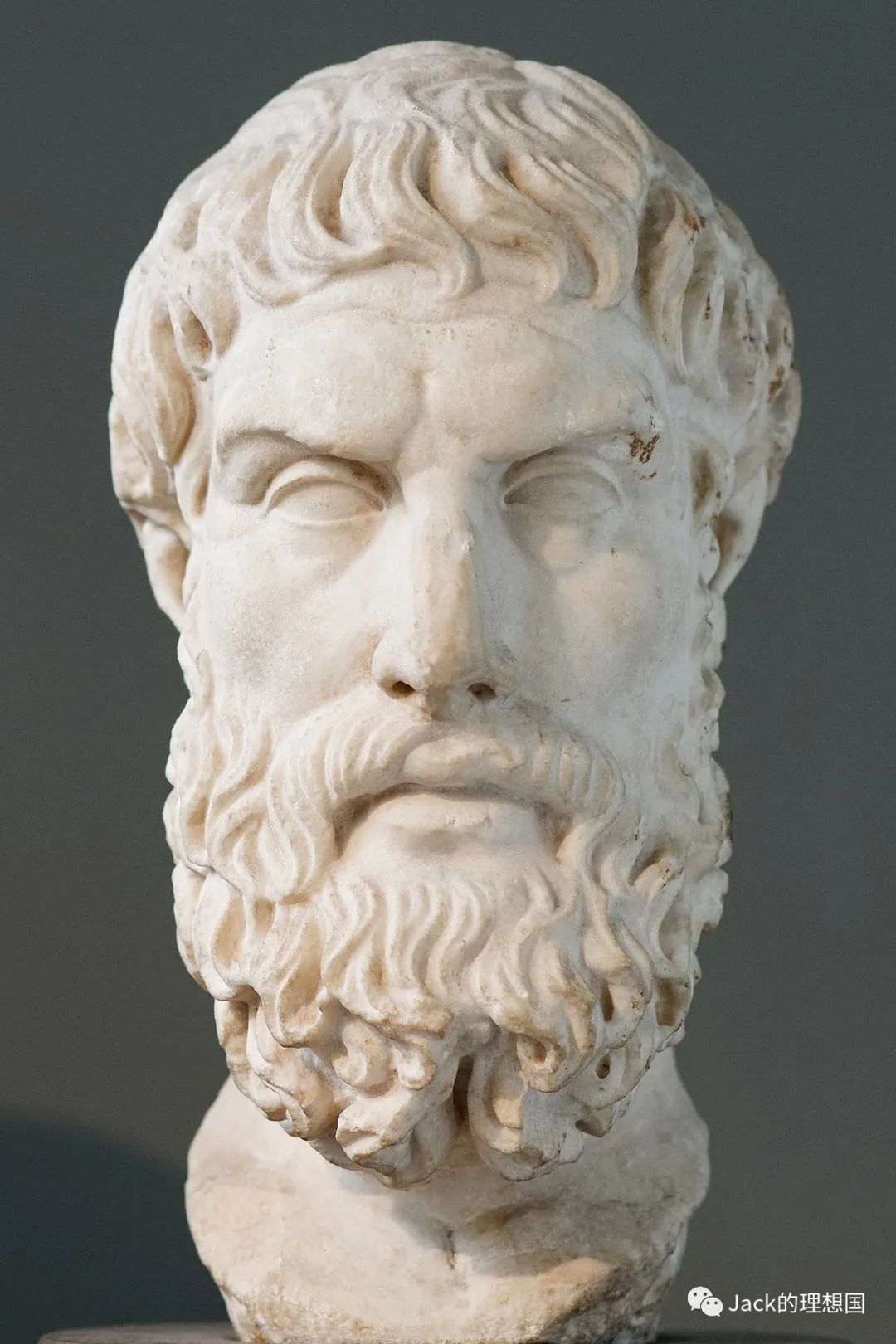
(Epicurus)
The most fitting place to start is, quite apparently, ancient Greece. Here, “eudaemonism,” the theory that the highest ethical goal is happiness or personal well-being, first emerged. Aristotle was the first to propose this view, but the thinking of Democritus and Epicurus can represent this line of philosophy the best. They believed that human nature is all about pursuing happiness, evading pain, and the criterion of morality is happiness. Everything that leads to happiness is good, and everything that leads to pain is evil. Virtue can only be valuable if it is linked with happiness. Democritus claimed that “pleasure and the absence of pleasure are the criteria for what is profitable and what is not.” Similarly, Epicurus argued that “pleasure is the beginning and the goal of a happy life, “though he claimed that one should choose the pleasure of philosophical conversation with friends over the pursuit of physical pleasures.
Ancient Greek philosophers held that happiness is the most intrinsic value of human life. However, the ancient Greeks were also initially the first debaters on whether happiness is attainable in our lifetimes. The story between the Lydian king Croesus and the Greek philosopher Solon in Herodotus’ Histories is pertinent here. The powerful Croesus believed that he was the happiest man living. Solon disagreed. Croesus was perplexed. He complained, “do you despise my happiness so much that you consider me less worthy than these common men?” Solon replied, “man is entirely chance, and nobody knows what the gods may bring tomorrow. You should count no man happy until he dies.” The events after corroborated Solon’s point, as The Persian army eventually captured Croesus. He realized the true meanings behind Solon’s words and gradually turned into a philosopher. This view suggests that true happiness cannot be judged or thus claimed to be achieved when one is alive. Though for the ancient Greeks, one could only recognize the achievement of true happiness after death, several notable philosophers did think of ways to achieve happiness. Socrates pointed out that by following our duties as good citizens and using our intellect, one can reach happiness.
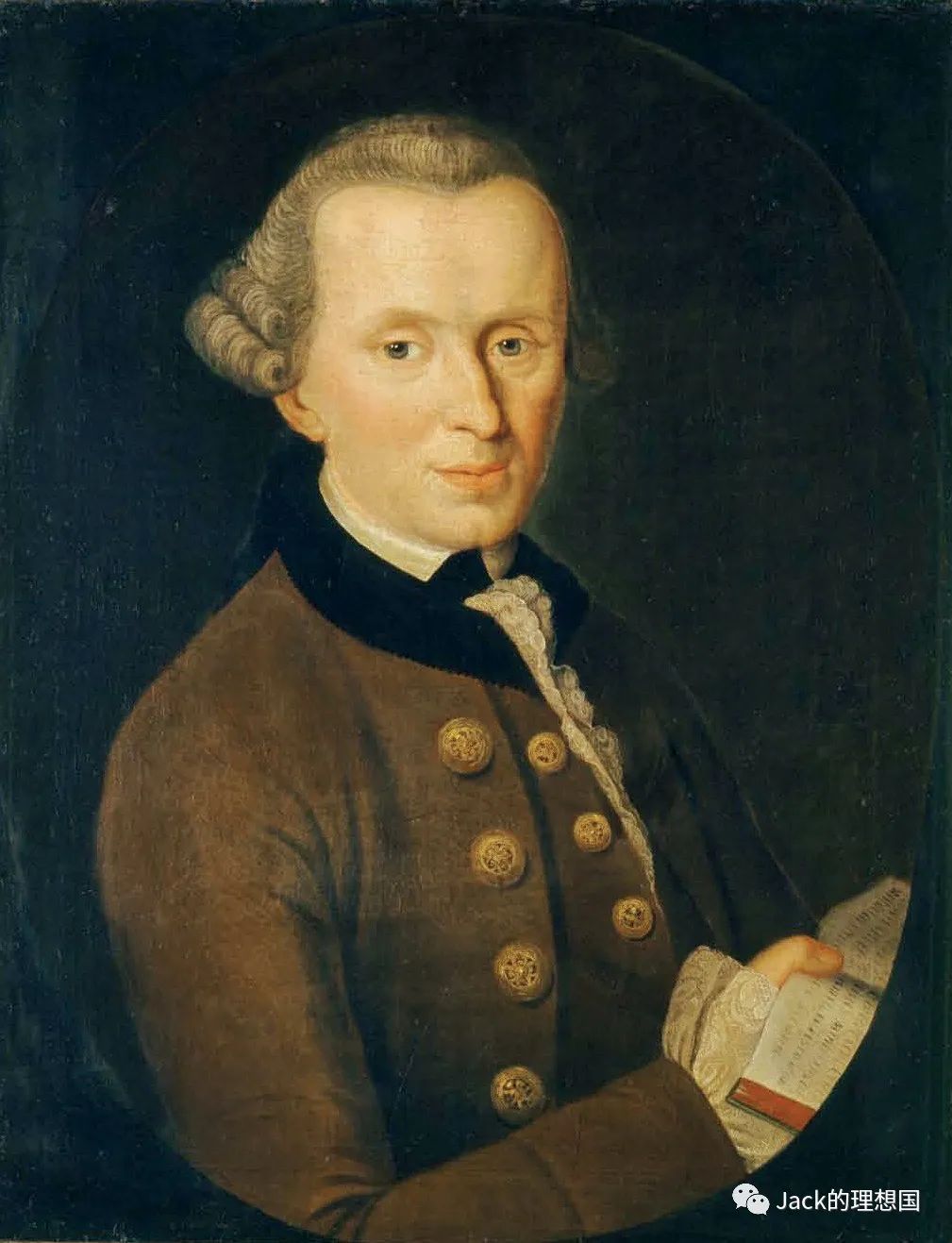
(Immanuel Kant)
The ancient Greek argument that happiness is essential for human life has not gone unchallenged. German philosopher Immanuel Kant challenged this notion in the 18th century, arguing that personal happiness or well-being cannot be the root or basics of morality. First, personal desire and happiness have a lot of randomness or uncertainty. The definition of happiness is murky. Every person has a different definition or feeling of what happiness is. Thus, one cannot give happiness a single rule, such as that happiness is the basis for all kindness or ethics because a single rule would not be prevalent enough to cover all cases of the pursuit of happiness. Second, more importantly, the rule of personal happiness cannot specify the origin of virtue and would also “overturn” it. Kant held that moral actions could not be based on personal desire, as doing so would sabotage the pureness of morality. If motives for morality and personal happiness are merged together, then while physical life is improved, morality would keep degenerating. The purer the morality, the more the pursuit of happiness is removed from morality, the more inspiring morality would be.
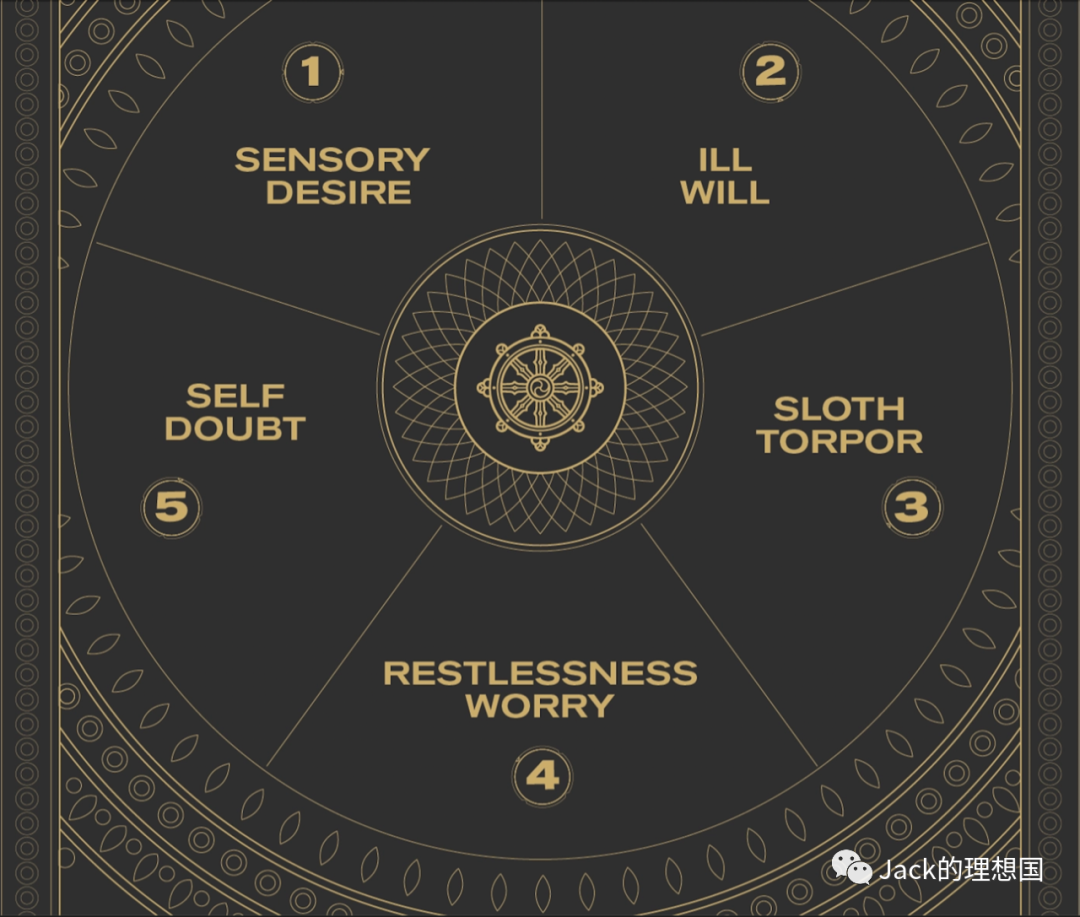
The philosophy surrounding happiness has occurred in the eastern hemisphere as well. Buddhism is a religion that focuses its thinking on how to achieve happiness. To be happy, a person must be able to "perceive the true nature of reality, unmodified by the mental constructs we superimpose on it." In other words, a person must procure "clarity" in seeing reality to achieve happiness. Unfortunately, this process is not easy, and most cannot last until the end.
Buddhism identifies five main challenges, or "hindrances": Sensual desire, ill will or aversion, dullness of the body or heaviness of the mind, restlessness, and skeptical doubt. To overcome such obstacles, Buddhism proposes the idea of "just let it RAIN," which comprises the four stages: Recognition, acceptance or acknowledgment, investigation, and non-identification. Non-identification is the transcendent state that "I am not my body, I am not my mind, nor my emotions. It is just that I can see these aspects." This idea encourages people to continue the climb by making them get rid of emotions, feel calm, gain transcendence, and establish a sense of apparent motivation or direction. Along with promoting calmness, this method also curbs desire and restlessness. By trying to be transcendent and detached, the temptation, the worrying, or the unsettledness of things would fade away. You would only focus on the present moment, not thinking about the past or future too much. When the desire and restlessness are gone, you are on your way to the peak of happiness.

Finally, the happiness philosophy extends to native cultures as well. In Native American culture, social harmony and interdependence with each other are often viewed as a source of happiness. But alongside harmony with other people, harmony with nature is regarded to provide stability and happiness. This concept of harmony with nature is significantly intertwined with society’s beliefs about spirituality, which is thought to bring peace and joy.
What is true happiness? Happiness is a feeling of meaningfulness, one’s sense that life has value and something to live up to and strive for. Today, it is becoming increasingly difficult to be happy. In medieval times, people had more arduous lives than modern people. Famine, disease, and war were still normality, and life was certainly more inconvenient back then. But would a modern man be happier than his medieval ancestor? Perhaps not. The medieval man would be deeply religious and believe that his life had meaning because he was working towards “heavenly bliss,” even though this might be a delusion. Thus, the mundane agonies of mortal life would not make him frequently unhappy, as the core of his life lay in his pious beliefs. In comparison, although the modern man lives a far better material life, he usually believes that his life is a lot more meaningless, with endless desires for more material wealth and pleasure. Thus, the modern man can be plagued with life's mundane agonies and is more likely to turn unhappy frequently.
Hence, how does one achieve happiness in a modern context? The answer might lie in possessing a “childish heart,” so to speak. A childish heart is composed of three elements, “passion, honesty, freedom”, and its importance in the quest to seek happiness today is almost always overlooked. Passion is a strong emotional charge of energy towards something, and most, if not all, children have passion for something in that period of life. Passion, above all, implies belief, not necessarily in a god or supernatural power, but in the strength of human emotions and actions. As mentioned above, happiness is a feeling of meaningfulness, a feeling that one has something to believe in and can fulfill that belief. By trying to be passionate about love relationships, friendship, about whatever occupies lifetime, people can seek meaning and happiness even amidst rough situations.
Honesty, be honest. When one is young, they like to tell close friends or family members everything. There is a solid layer of trust between each other. This trust brings faith because one would believe in another person or, more importantly, in themselves. If a person is honest enough, they would be able to recognize and acknowledge whatever decision or emotion they are making or experiencing, thus facing it more directly. This honest mindset would make problems easier to solve and decrease the frequency of staying unhappy for a long time.
Finally, freedom. Freedom, especially in the modern world, brings happiness. In this matter, mental freedom is more imperative than physical freedom. Mental freedom eventually means that one can, in effect, pursue their goals, dreams, or ambition without the confinement of outside factors. Today, almost all of us are “enslaved” by one thing or another, be it video games, online novels, constant dating, etc. One can pretend that they enjoy and feel happiness when playing games, reading online novels, or chatting with a strange girl or boy on social media. Still, it is undeniable that the origin of this so-called “happiness” resides not in you. Your happiness and mental state are not free when doing these things. They can be easily destroyed in the short-term, be it losing match after match in a game, or after reading nine hours of online novels, realizing that it is simply a fantastical, insignificant story, or that in the end, the girl or boy you are chatting to is a “masked person.” Therefore, people must pull themselves away from these “enslavers” and reach for a state of mental freedom. Only then can happiness truly be long-lasting and sustainable.
Arthur Schopenhauer once claimed, “it is difficult to find happiness with oneself, but it is impossible to find it anywhere else.” This quote, and all the evidence this article has examined, boil down to a straightforward conclusion that many still fail to realize: the search for happiness, though usually rough and discouraging, must begin with a proper inquiry into oneself and one’s relationship with their environment.
WORKS CITED
“Epicurus and His View on Happiness - an Overview.” Pursuit-of-Happiness.org, 2021, www.pursuit-of-happiness.org/history-of-happiness/epicurus/. Accessed 9 May 2022.
“Happiness.” Cuny.edu, 2022, www.qcc.cuny.edu/socialsciences/ppecorino/ethics_text/Chapter_8_Kantian_Theory/Happiness.htm. Accessed 9 May 2022.
“The Five Hindrances and Their Antidotes - Insight Timer Blog.” Insight Timer Blog, 5 Dec. 2019, insighttimer.com/blog/the-five-hindrances/. Accessed 9 May 2022.
“For Schopenhauer, Happiness Is a State of Semi-Satisfaction | Aeon Essays.” Aeon, 2020, aeon.co/essays/for-schopenhauer-happiness-is-a-state-of-semi-satisfaction. Accessed 9 May 2022.
PICTURES CITED
https://andreasvieth.de/kant/das-bildmaterial
https://commons.wikimedia.org/wiki/User:Jastrow
https://dribbble.com/shots/11284432-5-hindrances-to-self-mastery
https://watchoutformyreview.wordpress.com/2013/10/01/native-american-religion-spiritual-beliefs-and-practices/
“什么是幸福”是整个人类历史上最基本和最有争议的话题之一。关于这个话题的哲学思考不仅发生在那些"伟大的文明 "中,如古希腊或中国,而且也出现在世界各地的许多本土文化中。什么是真正的幸福?除了满足生理需求之外,人类为什么要追求幸福?人有可能在一生中获得真正的幸福吗?如果有,如何实现?这些都是今人仍在寻求答案的问题。为了进一步探索这些关于幸福的核心问题,有必要先看看祖先和前辈在这一内在探索中有什么贡献。
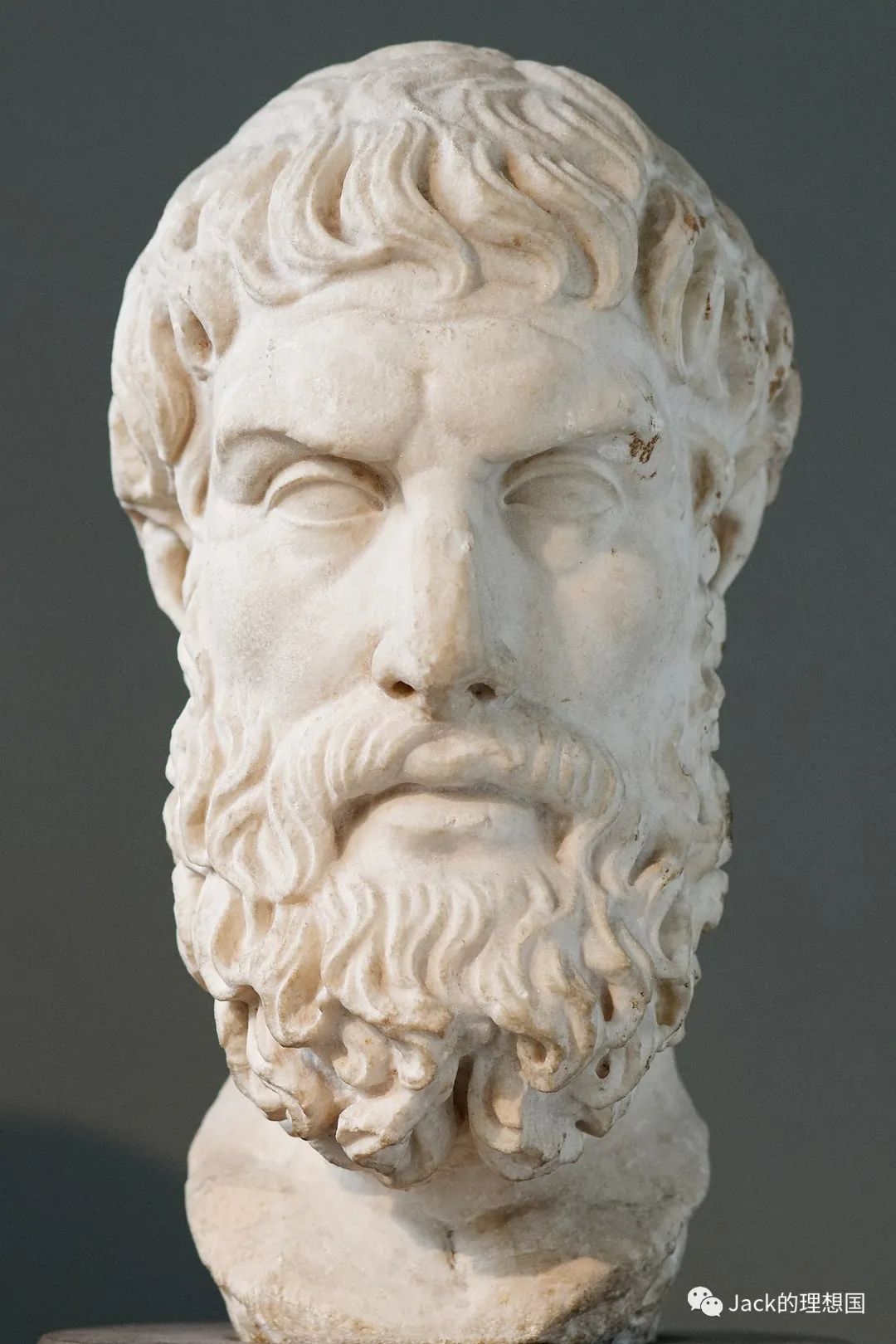
(伊壁鸠鲁)
很明显,最合适讨论的起点是古希腊。正是在这里,"幸福说",即最高道德目标是幸福或个人福祉的理论首次出现。亚里士多德是第一个提出这一观点的人,但德谟克利特和伊壁鸠鲁的思想可以更好地代表这一哲学路线。他们认为,人的本性都是追求幸福,逃避痛苦,道德的标准就是幸福。一切导致幸福的东西都是善,一切导致痛苦的东西都是恶。道德只有在与幸福相联系的情况下才有价值。德谟克利特声称,"快乐和不快乐是判断什么是有益的和什么是无益的标准"。同样,伊壁鸠鲁认为,"快乐是幸福生活的开始和目标",不过他认为,人们应该选择与朋友进行哲学对话的快乐,而不是单单追求身体的快乐。
古希腊哲学家认为,幸福是人类生活最内在的价值。古希腊人也是第一个关于幸福是否可以在我们的一生中实现的辩论者。希罗多德《历史》中吕底亚国王克罗伊索斯和哲学家、法学家梭伦之间关于幸福的讨论非常具有启发性。拥有绝对王权的志得意满的克罗伊索斯期待索伦认定自己是“世界上最幸福的人”,可梭伦却不认为克罗伊索斯是“世界上最幸福的人 ",后者感到困惑不解。他抱怨说:"你如此轻视我的幸福,以至于认为我不如这些普通人有价值吗?" 对此,梭伦回答说:"人生完全是偶然的,没有人知道诸神明天会带来什么。在人死之前,你不应该认为他是幸福的"。最后事实也证明了索伦的观点,克罗伊索斯最后战败被俘,历经磨难,最终蜕变成一个哲人。索伦的观点表明,真正的幸福是无法在活着的时候判断的,因此一个人也不能声称他在生前实现了真正的幸福。但这并不代表古希腊的哲学家们对人们生前追求幸福持消极态度,恰恰相反,一些著名的哲学家一直致力于探讨如何实现现世的幸福。苏格拉底指出,通过履行我们作为一个好公民的职责和使用我们的智力,人们可以达到幸福。

(康德)
古希腊人认为幸福是人类生活中最重要的因素,这一论点并非没有受到质疑。德国哲学家伊曼纽尔-康德在18世纪对这一概念提出了挑战,认为个人幸福或福祉不能成为道德的根源或基本要素。首先,个人欲望,幸福,有很多随机性或不确定性。幸福的定义是模糊的,每个人对什么是幸福都有不同的定义或感觉。因此,人们不能给幸福一个单一的规则,比如说幸福是所有仁慈或道德的基础,因为一个单一的规则不会普遍到足以涵盖追求幸福的所有情况。其次,更重要的是,个人幸福的规则不仅不能说明美德的起源,而且还会 "颠覆 "它。康德认为,道德行为不能基于个人欲望或幸福,因为这样做会破坏道德的纯粹性。如果基于道德的动机和基于个人幸福的动机合并在一起,那么在物质生活得到改善的同时,道德会不断退化。道德越纯粹,也就是说,对幸福的追求越是从道德中剔除,道德就越是鼓舞人心。
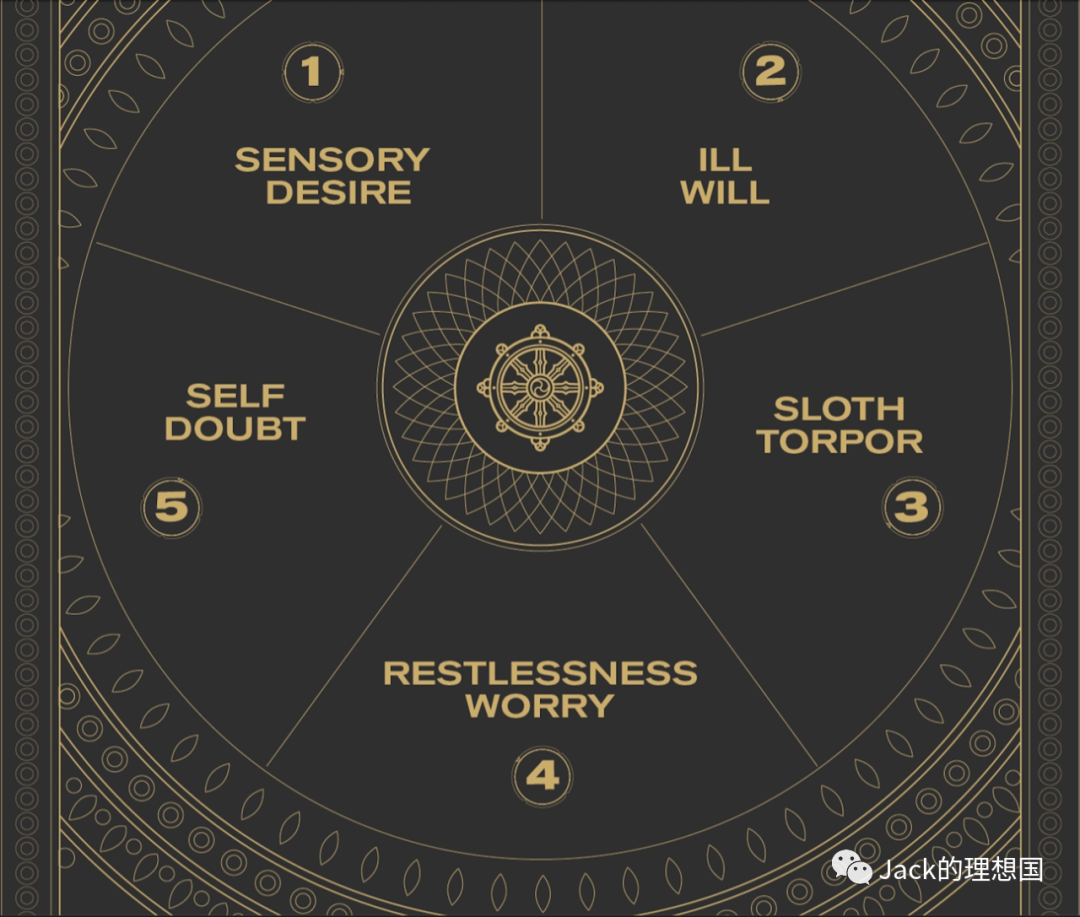
(佛教的五个障碍)
围绕幸福的哲学讨论也发生在东半球。佛教是一种将思维集中在如何获得幸福的宗教。要想获得幸福,一个人必须能够 "感知现实的真实性质,不被我们叠加在上面的心理结构所影响"。换句话说,一个人必须在看到现实时获得 "清晰度",以实现幸福。这个过程并不容易,而且大多数人不能坚持到最后。佛教确定了五个主要的挑战,或 "障碍":感性的欲望、不善或厌恶、身体的昏沉或思想的沉重、不安和怀疑的疑虑。为了克服这些障碍,佛教提出了 "顺其自然 "的观点,包括四个阶段:认可、接受或承认、调查和不认同。不认同是一种超越性的状态:"我不是我的身体,我不是我的思想,我不是我的情绪。只是我可以看到这些方面"。这种想法鼓励人们继续攀登,使他们摆脱情绪,感到平静,获得超越,并建立明确的动机或方向感。在促进平静的同时,这种方法也遏制了欲望和躁动。通过尝试超然和超脱,诱惑、忧虑或事情的不稳定感会逐渐消失。你只会专注于当下,不会过多地考虑过去或未来。当欲望和不安消失时,你就会走向幸福的高峰。

幸福哲学也延伸到土著文化。在美国土著文化中,社会和谐和相互依存往往被视为幸福的来源。但除了与其他人的和谐,与自然的和谐也被视为提供稳定和幸福。这种与自然和谐的概念与社会的精神信仰有很大的交集,精神信仰被认为可以带来和平和快乐。
什么是真正的幸福?幸福是一种有意义的感觉,一个人感觉到生命有价值,有东西可以为之存活,为之奋斗。今天,要获得幸福越来越难。在中世纪,人们的生活比现代人更艰难。饥荒、疾病、战争,仍然是常态,那时的生活当然更不方便。但现代人会比中世纪的祖先更幸福吗?也许不会。中世纪的人有很坚定的宗教信仰,并相信他的生活是有意义的,因为他正在为 "天堂的幸福 "而努力,尽管这可能都是一种错觉。因此,凡人生活的世俗痛苦不会让他经常不开心,因为他生活的核心在于他虔诚的信仰。相比之下,现代人虽然物质生活好得多,但通常认为他的生活更没有意义,对更多的物质财富和快乐有无尽的欲望。因此,现代人可能被生活中的世俗痛苦所困扰,更有可能经常变得不快乐。
因此,在现代背景下,人们如何获得幸福?答案可能在于拥有一颗 "童心"。一颗童心由三个元素组成,即 "激情、诚实、自由",它在今天寻求幸福的过程中的重要性几乎总是被忽视。激情是对某件事情的强烈情绪化的能量,在人生的那个时期,大多数(如果不是全部)孩子都对某件事情有激情。激情,首先意味着信仰,不一定是对神或超自然力量的信仰,而是对人类情感和人类行动的力量的信仰。如上所述,幸福是一种有意义的感觉,是一个人有信仰并有能力实现这种信仰的感觉。通过努力对爱情关系,对友谊,对任何占据一生的事物充满热情,人们可以在粗糙的情况下寻求意义和幸福。
要诚实。当一个人年幼的时候,他们喜欢告诉亲密的朋友或家人一切,彼此之间有一层坚实的信任。这种信任带来了信心,因为人们会相信另一个人,或者更重要的是相信自己。如果一个人足够诚实,那么他们将能够认识和承认他们正在做出的任何决定或经历的任何情绪,从而更直接地面对它。这种诚实的心态会使问题更容易解决,并减少长期保持不快乐的频率。
最后,自由。自由,特别是在现代世界,会带来幸福。在这个问题上,精神自由比身体自由更有必要论述。精神上的自由最终意味着,一个人实际上可以追求他的每一个目标、梦想或野心,而不受外界因素的束缚。今天,几乎所有的人都被这样或那样的东西 "奴役 "着,无论是电子游戏、网络小说,还是不断的约会,等等。人们可以假装在玩游戏、阅读网络小说、在社交媒体上与陌生女孩或男孩聊天时享受和感受到幸福,但不可否认的是,这种所谓的 "幸福 "的起源并不在你身上。在做这些事情的时候,你的快乐、你的精神状态并不是自由的,它们可以在短期内被轻易摧毁,无论是在游戏中输掉一场又一场的比赛,还是在阅读了9个小时的网络小说之后,发现那只不过是一个虚浮的故事,或者最后发现和你聊天的女孩或男孩是一个彻头彻尾的“假面人”。因此,至关重要的是,人们要把自己从这些 "奴隶主 "中拉出来,达到精神自由的状态。只有这样,幸福才能真正持久和持续。
亚瑟-叔本华曾声称,"在自己的内心求得幸福很难,但在别处则不可能找到幸福"。这句话,以及本文所研究的所有证据,都归结为一个许多人仍没意识到的简单结论:对幸福的寻求,尽管通常是艰难和令人沮丧的,但必须始于对自己内心、心灵,以及与周围环境的关系的深入探究。
- 本文标签: 原创
- 本文链接: http://www.jack-utopia.cn//article/406
- 版权声明: 本文由Jack原创发布,转载请遵循《署名-非商业性使用-相同方式共享 4.0 国际 (CC BY-NC-SA 4.0)》许可协议授权










